Must California Reform its
Current Public Employee Pensions,
or GO BROKE?
|
|
California's Present Fight for Economic Survival
|
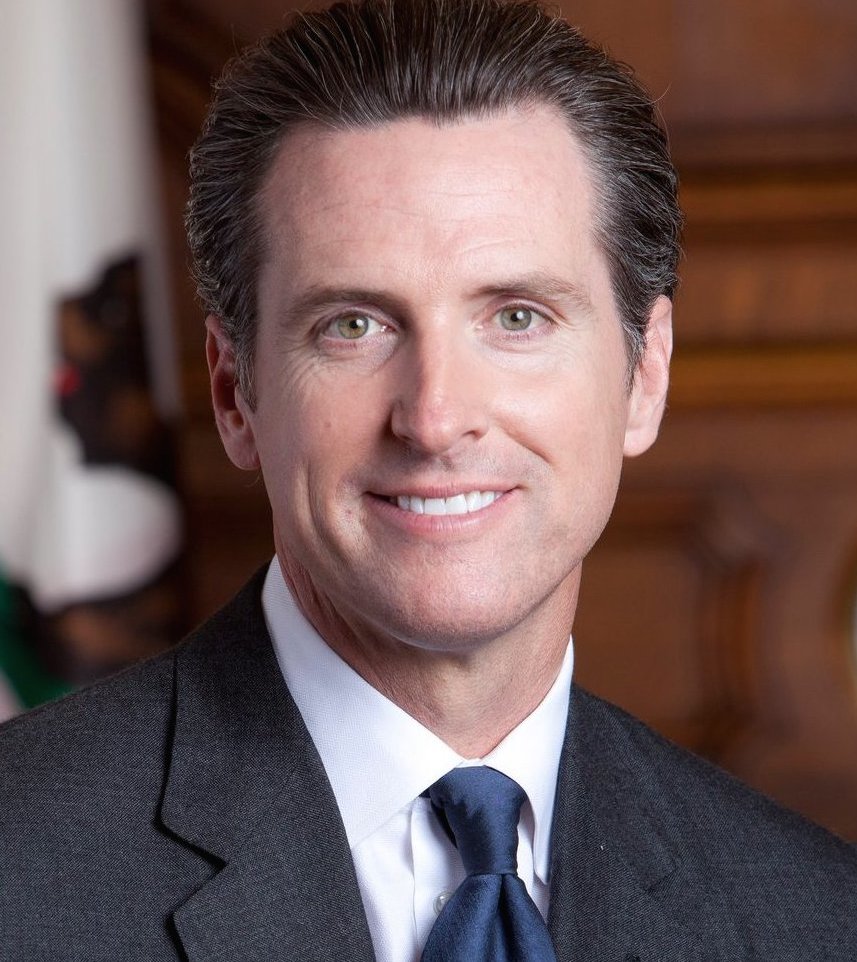
|
The Mexican-American War of 1846-1848 resulted in Texas and California becoming part of the United States. Despite our common origin, and the many things our states share in common, our current political and economic points of view are drifting further and further apart. Governor Greg Abbott from Texas (a RED STATE meaning predominantly Republican) has targeted California, a BLUE STATE, meaning predominantly Democrat) to lure away businesses and jobs, signaling more than a rivalry between these two mega-states. The Texas-California competition represents the political, economic and cultural differences driving American politics today and for the foreseeable future.
SEE CHAPTER 5
|
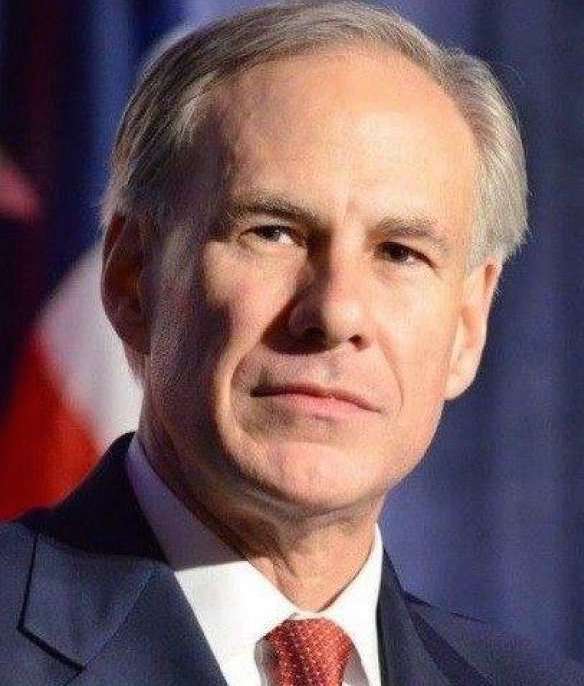
|
|
|
|
Texas and California are robust political and economic competitors.
California is a global hub for trade, tourism, culture and the manufacture of ideas and intellectual property. From high tech and biotech to entertainment, travel and logistics, the state's brand transcends national boundaries. The Golden State tops the nation in agriculture. It also sets the pace on green energy development, which has led to costly increases in the state's energy production.
|
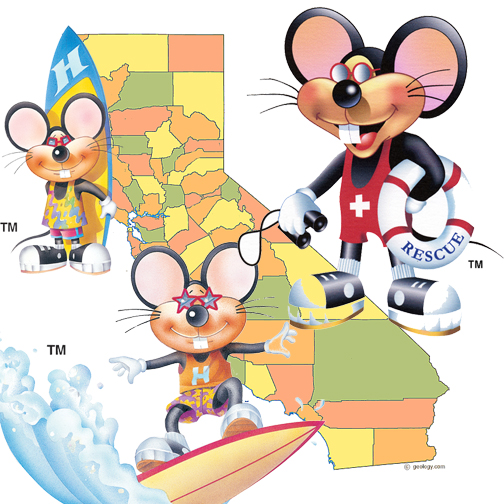
|
|
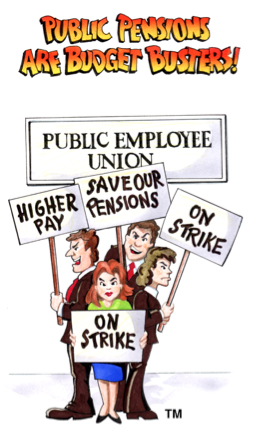
|
The Texas economy, too, has always been based on energy and agriculture. But it has been building a manufacturing and service base, and as a red state attracting businesses with lower wage rates, weaker unions, a friendly regulatory climate and large fiscal incentives. California and Texas are political opposites.
|
|
|
The two states are most sharply divided by their very different cultural, economic and political values.
Evangelical Christians, for example, compose roughly a third of the Texas electorate, about twice that of California and Texas remains gun country. California, however, has a strong gay activist community and some of the nation's most stringent gun laws. These differences matter in politics and economics.
Governor Brown's Prop 30 (raising state income and sales taxes) has disgruntled California entrepreneurs, corporate executives and workers looking for a more business-friendly atmosphere.
Former Governor Rick Perry had jumped on the opportunity to lure those California employers and employees to Texas by purchasing numerous California radio ads, touting the benefits that Texas has to offer.
Brown shrugged off Perry's recruiting efforts as barely a fart.
|
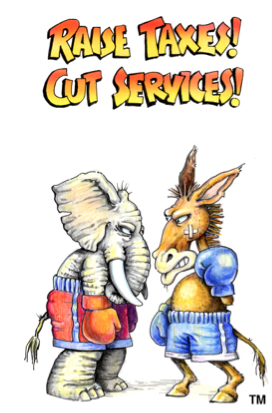
|
|
|
|
|
|
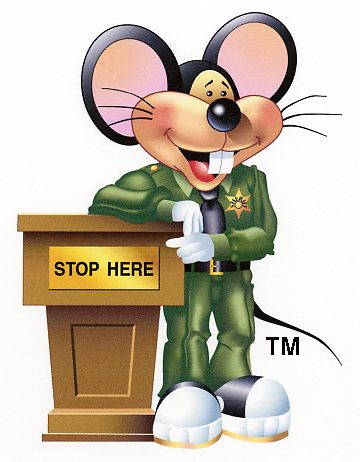
|
Recently, Texas' dissing of California's economy and business policies also resonates with the Golden State's GOP primary voters, whose mantra is that the sky has fallen because Democrats and unions are now holding all the political cards. In the debate over which state has the economic edge, both sides have their talking points. Texas has lower taxes, less unemployment and an energy boom as well as a lower minimum wage. California leads in venture capital and in the innovation and creativity recognized the world over as unique to Hollywood and the Silicon Valley. If the political climate allows, California could become the poster child for the potentially lucrative fracking industry (See Chapter 11).
|
|
|
California's Pacific Rim ports also provide a strategic advantage for trade. The Ports of Los Angeles and Long Beach are both ranked in the top 25 world ports. The climate is also a huge draw, as well as the intangibles of glamour and lifestyle. With the enlargement of the Panama Canal, Texas ports will create more than the 1.4 million jobs currently in place and are not as harried by striking dock workers as those in California. Texas can also boast of lower housing costs and amore business-friendly regulatory system. What both states share are huge infrastructure and environmental challenges.
|
|
|
Thanks to Prop. 13, California has lower property taxes in the nation, but it's still cheaper to buy property in Texas than in California. In addition to higher income taxes in California, businesses complain about the state's slow, burdensome regulatory process, litigious overkill, a clogged transportation system, the confounding layers of government and the outsize political power of public employee unions and the devastating results of those unions' unfunded pensions.
|
|
|
One of California's biggest economic drivers has traditionally been its strong educational system. But public higher education has been under the budgetary gun in recent years. The University of California and State University systems are fighting to hang on to their top national rankings and gilt-edged faculty. Private institutions like Stanford, the California Institute of Technology and the University of Southern California help add luster.
|
|
|
|
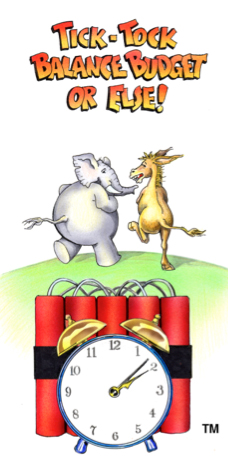
|
A quarter of all Texans have bachelor's degrees, while roughly a third of Californians do, which could be due to the fact California has twice as many community colleges as Texas offering the first step towards earning a degree. Both states are struggling with K-12 funding and the challenge of educating a large immigrant population.
California also boasts a large and growing Asian population (13 percent), as compared with less than 4 percent in Texas. African-Americans are about 12 percent of the Texas population and 6 percent in California. Different ethnic communities have different needs, and politicians have to cater to those needs.
Why is this rivalry between states important? Because without a new gold rush, (fracking anyone?) California may experience a corporation rush out of the state and into Texas!
Unfunded public employee pensions are the ticking time bomb that once exploded could blow this state into bankruptcy court driving away vital business interests.
- Walt Huber
|
|

|
|

|
|
TO PLACE AN ORDER, Call or Fax SHELLY
PHONE 626-339-7733 - FAX 626-332-4744 OR CLICK HERE!
|
|
|
|


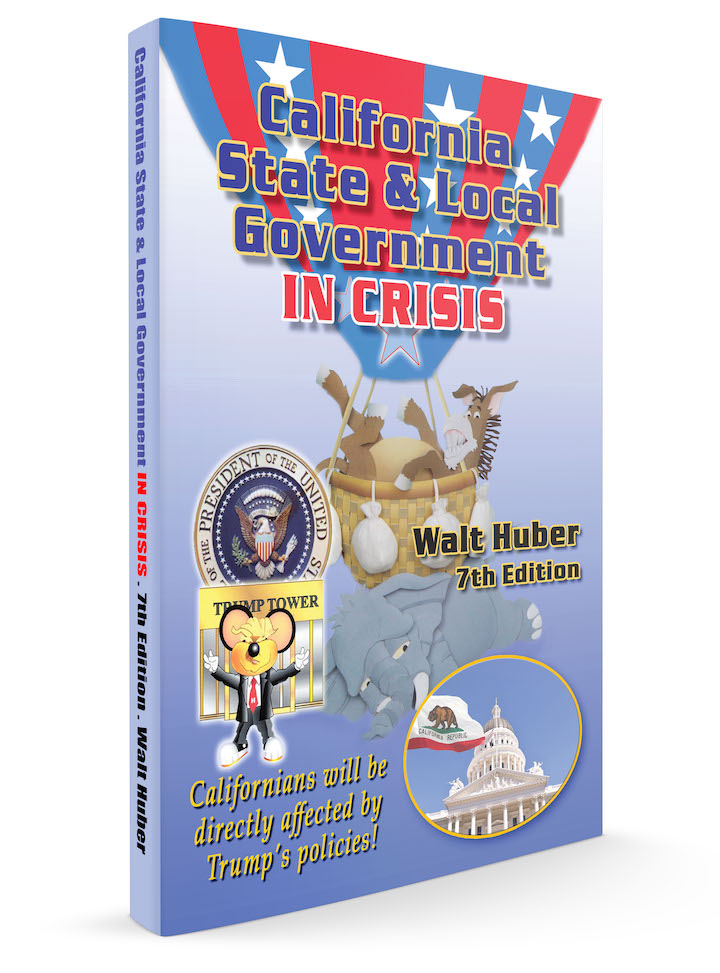
 The political landscape of California will never be the same. Since Donald Trump took office in 2017, students were up in arms and had been protesting in the streets. It's more important than ever to understand how California's political system works (and how it is broken) as well as how it contrasts with the Federal agenda.
The political landscape of California will never be the same. Since Donald Trump took office in 2017, students were up in arms and had been protesting in the streets. It's more important than ever to understand how California's political system works (and how it is broken) as well as how it contrasts with the Federal agenda.